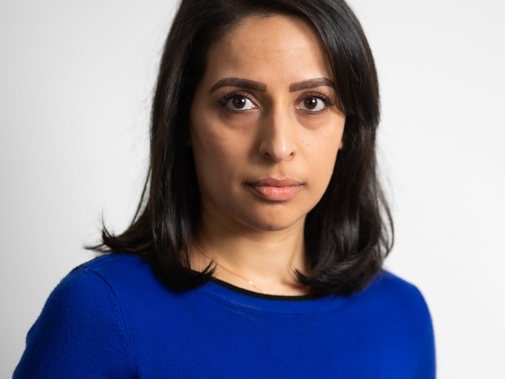One of the main reasons for writing this column has been to reflect on the biggest issues of the day and, most importantly, how the BMA can magnify your voice and ensure our profession is at the very heart of our work.
In recent weeks and months social media has been dominated by two topics, with important conversations around industrial action and pay restoration and PAs (physician associates) at the forefront of many colleagues’ minds. These conversations are not always respectful and understanding. I’ve seen BMA members attacked by external critics and colleagues, for raising concerns.
These are important topics – they do need to be discussed. I’ve reflected on the conversations I’ve seen, why these are important issues and, ultimately, why during times of conflict it is more important than ever that as many members as possible get involved in your BMA, bringing their diverse backgrounds, experiences and ideas to leadership roles so we can represent all members collectively.
Our journey towards pay restoration began in June 2022 with a motion at your BMA annual representative meeting, which committed us to achieving full pay restoration for all members by 2027. These are shared principles voted for by medical students’ and doctors’ representatives democratically and they unite us.
I have seen attacks on junior doctors and medical students. They are called militants and they are smeared in the media. Sometimes the accusations and the criticism come from our own colleagues. This, in my view, suggests a fundamental lack of empathy.
As a specialty trainee 7 I might still be a junior doctor but I graduated from medical school in 2011 so the truth is I can’t properly relate to what most of today’s medical students and junior doctors see in their daily lives – the lived experiences that have led them to campaign so powerfully for full pay restoration and for the future of the NHS.
I didn’t join the NHS when there was a pandemic, I wasn’t parachuted prematurely on to the front line from medical school to see patients and colleagues die in unprecedented numbers, and I came into an NHS where I felt much more valued.
I had the benefit of better financial support, NHS bursaries and lower interest rates on my loans. Ultimately, with lower waiting lists and better resourcing the NHS was a better place a decade ago. I wonder if those criticising elected members have put themselves in their shoes?
When we put ourselves in their shoes I think things become much clearer. I don’t think those criticisms that striking doctors should be more ‘altruistic’ ring true at all. Our friends and colleagues are asking to feel valued, they are campaigning for respect and autonomy and better working conditions. Ultimately, they are fighting for the future of our health service and for patient safety because if there are no doctors left there is no NHS. If we know society depends on a healthy NHS then what is more altruistic than to fight for it now? And ultimately, fight for our worth?
The other issue dominating discussions is PAs. The role and regulation of PAs is a debate which has been swirling with increased ferocity in recent months. I have seen doctors called ‘toxic’ for having strong, principled views. I have seen doctors called ‘snobs’ in high-level meetings with stakeholders when they call for regulation and clear differentiation between roles.
Our raising of concerns might seem unhealthy or unhelpful to some but there is real concern from the medical workforce, and that is justified. Forgetting the insults and the mud-slinging, this is about patient safety. Just as the industrial action ultimately is, too.
Patients should be able to trust that the person caring for them is a doctor, not another professional near-indistinguishable in appearance but who has a fraction of the training. When I get on a plane I expect a pilot with an airline transport pilot licence to fly, not a pilot associate with a few months’ training who happened to be in the same building.
I’m proud of our membership. We are standing our ground and we are making our voices heard on the issues which affect our lives and our patients. Our stakeholders – those who hold sway over our working lives – should be on notice. It is becoming ever more clear. We won’t back down. We will be heard.
In many ways these debates make it feel like we are at a crossroads, a turning point, or another important moment for our profession and the NHS. It has never been more important that as many people as possible get involved in the BMA so we can represent doctors to the best of our abilities. Join us.
Get in touch @DrLatifaPatel or email [email protected]
Dr Latifa Patel is chair of the BMA representative body

